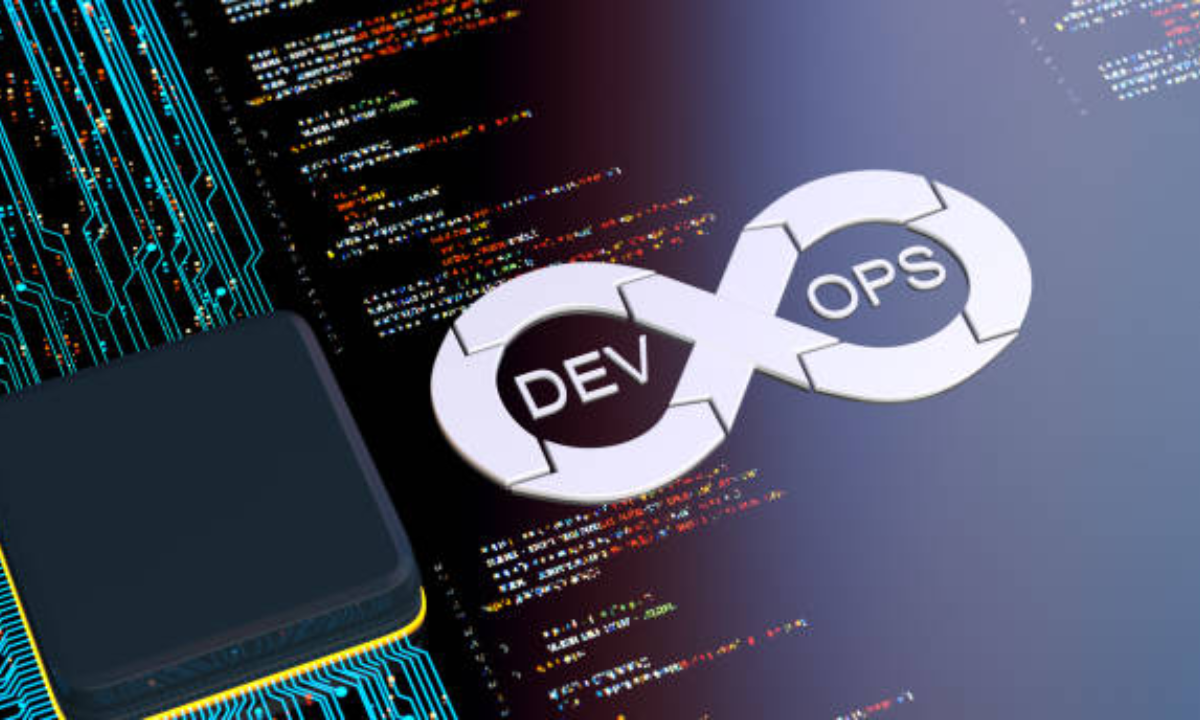Table of contents
|
1. Overview of AWS DevOps and the Rewards for a Career |
|
2. Learning about DevOps Architecture to succeed in AWS. |
|
3. Here are 25 important AWS DevOps interview questions with their answers.
|
|
4. The importance of being skilled in AWS DevOps in 2025 |
With DevOps, it is now possible to deliver advanced software more swiftly than before. When you are ready to move forward in DevOps engineering, especially with AWS, it’s necessary to prepare for common questions during interviews. This guide lists 25 important questions and answers about DevOps, focused on 2025, and outlines the essentials, valuable aspects, and skills that make a difference for you.
Overview of AWS DevOps and the Rewards for a Career
AWS leads the cloud service industry, and many IT organizations rely on DevOps for their cloud strategies. Together, AWS and DevOps create a robust environment for continuous integration and delivery. Mastering these concepts gives you a competitive edge in the job market.
Taking a DevOps course in Bangalore or any tech hub is a popular route to build a foundation in these skills, and having real-world AWS experience is highly valued globally.
Learning about DevOps Architecture to succeed in AWS
Before getting started with the AWS DevOps interview questions, you need to get familiar with the main DevOps architecture. In essence, DevOps architecture focuses on automating, observing, and enhancing the communication between development and IT operations. It allows us to accomplish:
-
Increased speeds for both development and deployment
-
Knowledge is updated based on regular assessments
-
Enhanced ability to cooperate and talk to each other
When interviewing, you can feel confident responding to DevOps questions thanks to learning the basics of its architecture, since it is essential for all successful implementations on AWS and other cloud services.
Here are 25 important AWS DevOps interview questions with their answers
1. What does DevOps mean, and what is AWS about it?
DevOps combines certain ways of working, tools, and methods that help a company provide applications and services more quickly. DevOps automation can be made efficient through AWS’s flexible computing and services.
2. Determine how the infrastructure looks in AWS for DevOps.
For implementing DevOps architecture on AWS, you may integrate AWS services EC2, S3, CodeBuild, and CodeDeploy with CI/CD. It automates, tracks, and deploys products for fuss-free and fast delivery.
3. Include the must-have skills for AWS jobs for DevOps engineers.
-
Knowing AWS services
-
Chef, Puppet, and Ansible are among the best automation tools.
-
It is important to be knowledgeable about CI/CD pipelines.
-
Skills in scripting (e.g., Python and Bash)
-
CloudWatch and the ELK stack for monitoring and logging
4. What is the purpose of AWS CodePipeline in a DevOps environment?
CodePipeline is an easy-to-use service that looks after the build, test, and deploy phases in releasing software.
5. How should you pursue continuous integration and continuous deployment using AWS?
You can rely on AWS CodeCommit, CodeBuild, and CodeDeploy for effectively managing source control, the build process and deployment. They make it possible for CI/CD pipelines to perform well.
6. Outline how Blue/Green deployment is used on the AWS cloud.
Using blue/green deployment allows you to reduce the impacts of a rollout by using different environments for the current and new versions.
7. What role does Infrastructure as Code play in the structure of DevOps architecture?
By using AWS CloudFormation or Terraform, IaC helps ensure that infrastructure can be consistently managed, repeated, and automated.
8. Name a few monitoring and logging services offered by AWS.
- Amazon CloudWatch
-
CloudTrail for AWS
-
You can use ELK Stack to manage your logs.
9. Define VPCs and describe the main reasons they are important in DevOps.
You can keep VPC (Virtual Private Cloud) safe and separate from other networks. It allows for the safe expansion and deployment of software in DevOps.
10. How does DevOps make use of S3?
Since Amazon S3 stores the artifacts, logs, and backups, it becomes key to automating the entire deployment process.
11. Why is automated testing important in the DevOps process?
With automated testing, you receive quick results and well-written code. AWS CodeBuild ensures that the delivery pipeline works smoothly.
12. Outline the key stages found in a DevOps pipeline on AWS.
1. Source (CodeCommit)
2. Build (CodeBuild)
3. Carry out most tests with automation.
4. Deploy (CodeDeploy)
5. Monitor (CloudWatch)
13. How can AWS Lambda functions be applied in DevOps?
With AWS Lambda, developers can set up tasks like code testing, triggering, and event handling automatically.
14. Detail what an automated rollback is and how it helps.
If an automated rollback is put in place, recovering from a failed deployment becomes fast and keeps the system running smoothly.
15. What steps are used to manage secrets and credentials in the AWS DevOps architecture?
It is possible to use AWS Secrets Manager or AWS Systems Manager Parameter Store to ensure that secrets and credentials in pipelines are kept safe.
16. How can we change or manage system configuration on AWS?
Chef and Puppet in AWS OpsWorks are used to manage and automate how servers are set up and executed.
17. Summarize the methods of containerization on AWS.
-
Amazon ECS (Elastic Container Service)
-
Amazon EKS (Elastic Kubernetes Service)
-
AWS Fargate offers the use of serverless containers.
These services assist with the management, upscale, and deployment of containers.
18. What steps do you follow to ensure high availability and reliability during DevOps on the AWS platform?
Ensure high availability and reliability of your system by using multi-AZ, load balancers, auto-scaling, and automated backups.
19. What is the significance of automation in the abilities of a DevOps engineer?
Applying automation helps ensure each release is consistent, receives instant feedback, and has fewer errors. A skilled DevOps engineer has mastered automation tools.
20. How should a CI/CD pipeline be secured in AWS?
-
Follow the practice of using IAM roles and policies.
-
Store data safely and Encode data that is moving
-
Make it automatic to scan security in the pipelines.
21. Why should you consider AWS-managed DevOps services?
-
Operating costs are reduced.
-
The system can be enlarged and protected without difficulties.
-
Better team members interacting with each other
22. Is there a way for a user to stay informed about the latest AWS DevOps trends?
-
Attend and join AWS events.
-
Enroll in a DevOps course offered in Bangalore.
-
Check out DevOps forums and regularly read AWS blogs.
23. Canary Deployment is used to test new software changes, so how does AWS assist with it?
Small portions of users receive Canary Deployment, and the process is checked for problems using AWS CodeDeploy.
24. How does using feedback loops benefit the DevOps process?
Thanks to monitoring and log data, teams discover issues more quickly, make improvements regularly, and address users’ expectations promptly.
25. Help AWS DevOps learners build a learning strategy.
-
Essentials of using AWS cloud
-
Top principles of DevOps
-
DevOps engineer skills should also be considered (using CI/CD and automation tools as well as scripting)
-
Having interactions with DevOps tools
You can also get in-depth knowledge through a DevOps course in Bangalore.
The importance of being skilled in AWS DevOps in 2025
-
Growing Demand: There will be a significant increase in demand for workers with DevOps and AWS skills.
-
Someone with AWS and DevOps certifications may qualify for a higher income.
-
DevOps architecture helps teams produce products that are high in quality and delivered in less time.
-
Attending a DevOps course in Bangalore allows you to work in IT jobs around the world.
In short, here are some tips for conducting an AWS DevOps interview.
To prepare for jobs in advanced DevOps engineer skills, you should focus on learning AWS-related DevOps issues. Engaging in a DevOps program in Bangalore will allow you to develop your tech skills and feel confident in interviews held in 2025. Begin by reviewing these questions, work at them regularly, and always try learning about new DevOps tools.
At Apponix, students can enroll in a DevOps course in Bangalore, gaining experience and the appropriate knowledge about cloud, CI/CD, and automation tools to pursue a career in DevOps.





